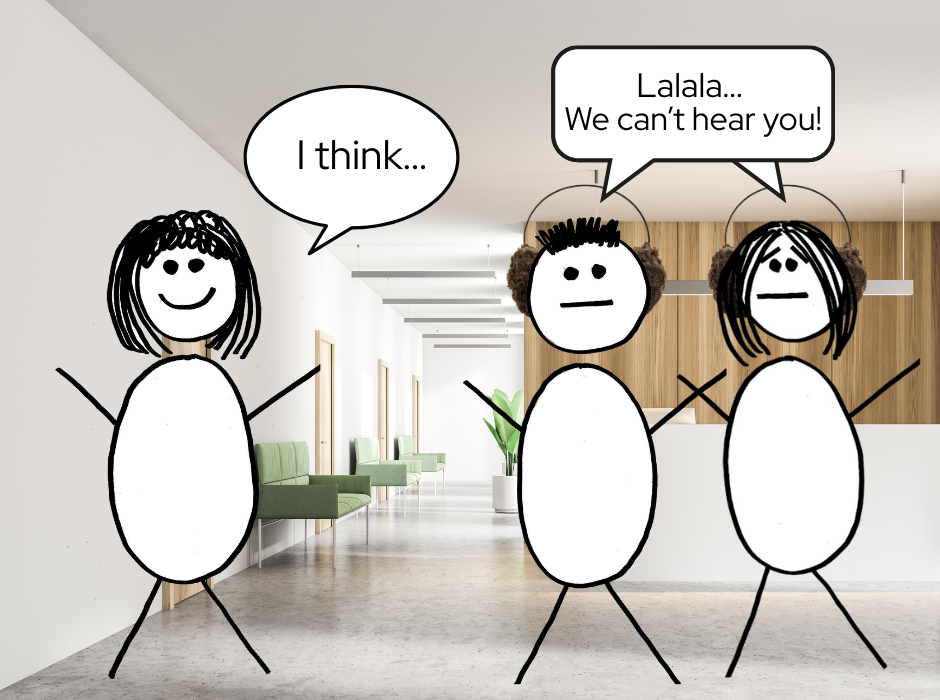The Stages of Burnout: Recognizing and Preventing Workplace Exhaustion
- Judy Sims
- Jul 13
- 4 min read

When I was a corporate VP, I woke one morning and looked at my calendar for the day and my heart sank. It wasn’t because there was anything particularly onerous scheduled for that day, it was just that I just couldn’t do One. More. Damn. Meeting. On top of that, my head hurt, my back ached, I had chronic heartburn, and a face full of acne, the scars from which remain present to this day. I called in sick and went back to sleep.
I was cooked. Done. Completely burnt.
We hear the word burnout thrown around a lot these days. But what exactly is it, and how do you know if you're headed towards burnout at work? Burnout is a state of emotional, physical, and mental exhaustion caused by prolonged or excessive stress. It's not just about feeling tired – it's a gradual process that can creep up on you if left unchecked.
Understanding the stages of burnout can help you identify the warning signs early and take steps to prevent it from taking hold.
Here are the 5 stages of burnout:
Stage 1: Honeymoon Phase
This initial stage is often marked by enthusiasm and a strong sense of purpose in your work. You take on extra tasks, stay late at the office, and generally feel energized by your job. However, this initial burst of motivation can mask the potential for burnout down the line.
Stage 2: Onset of Stress
As demands at work increase, you might start feeling overwhelmed. Deadlines loom, workloads become heavier, and you begin to experience symptoms of stress like headaches, stomach aches, or difficulty sleeping. You might push through these symptoms with sheer willpower, but it's a sign that your body is starting to feel the strain.
Stage 3: Frustration and Cynicism
As stress continues to build, frustration sets in. You might become cynical about your work, feel increasingly critical of colleagues, and lose your sense of accomplishment. This negativity can start to affect your personal life as well, leading to irritability and withdrawal from social activities.
Stage 4: Reduced Efficiency
Burnout starts to take a toll on your work performance. You might find it difficult to concentrate, make mistakes more frequently, and feel a general lack of motivation. This can lead to a vicious cycle, where your declining performance adds to your stress and hastens burnout.
Stage 5: Emotional Exhaustion
In this final stage, you're emotionally depleted. You feel detached from your work, experience a sense of hopelessness, and might even withdraw from social interaction altogether. Physical symptoms like fatigue and illness become more common, and overall well-being suffers significantly.
Recognizing the Signs
Burnout doesn't affect everyone the same way, but there are some common warning signs to watch out for:
Increased cynicism and negativity towards work
Constant fatigue and difficulty sleeping
Difficulty concentrating and staying focused
Increased irritability and impatience
Withdrawal from social activities and hobbies
Feeling overwhelmed and unable to cope
Preventing Burnout
The good news is that burnout is preventable. Here are some tips to manage stress and create a healthier work-life balance:
Talk to your boss about it. Most likely, your boss doesn't want you to burn out any more than you do. Here's an action plan to help you bring it up in a confident and constructive manner.
Build a personal recharge ritual. Create a daily practice that refuels your energy and resilience, and allows you to to disconnect from the world and reconnect with yourself. Here's a guide to help you build your recharge ritual.
Take a work-free vacation. It's possible! Here's how to get the most out of your time away from the office.
Free Workbooks to Help You Get Started
Energy Drainers Workbook

Uncover all the little, tiny, stupid things that drain your energy each and every day. We tend to ignore them, unaware that they are a daily tax on our attention time and energy.
Having too many of them can lead to a feeling of overwhelm that can prevent us from tackling the big challenges in our lives - things like our wellbeing, and having a fulfilling and purposeful career.
This is where all that changes.
Wellness Visioning Workbook

Wellness is about more than just being healthy.
When we are well, we feel good physically, emotionally, and mentally. We have energy and vitality. We are able to love and be loved.
In this workbook, you will explore your sense of wellness across 12 key dimensions so you can balance your energy and balance your life.
Remember, your well-being is important. By recognizing the stages of burnout and taking steps to prevent it, you can create a sustainable and fulfilling work life.
Well helloooo there! Like what you see here? We'd love to have you as a member of the Expansive Woman Project. We provide content, courses, and community designed to help you take charge of your career. Membership is free, and always will be!



